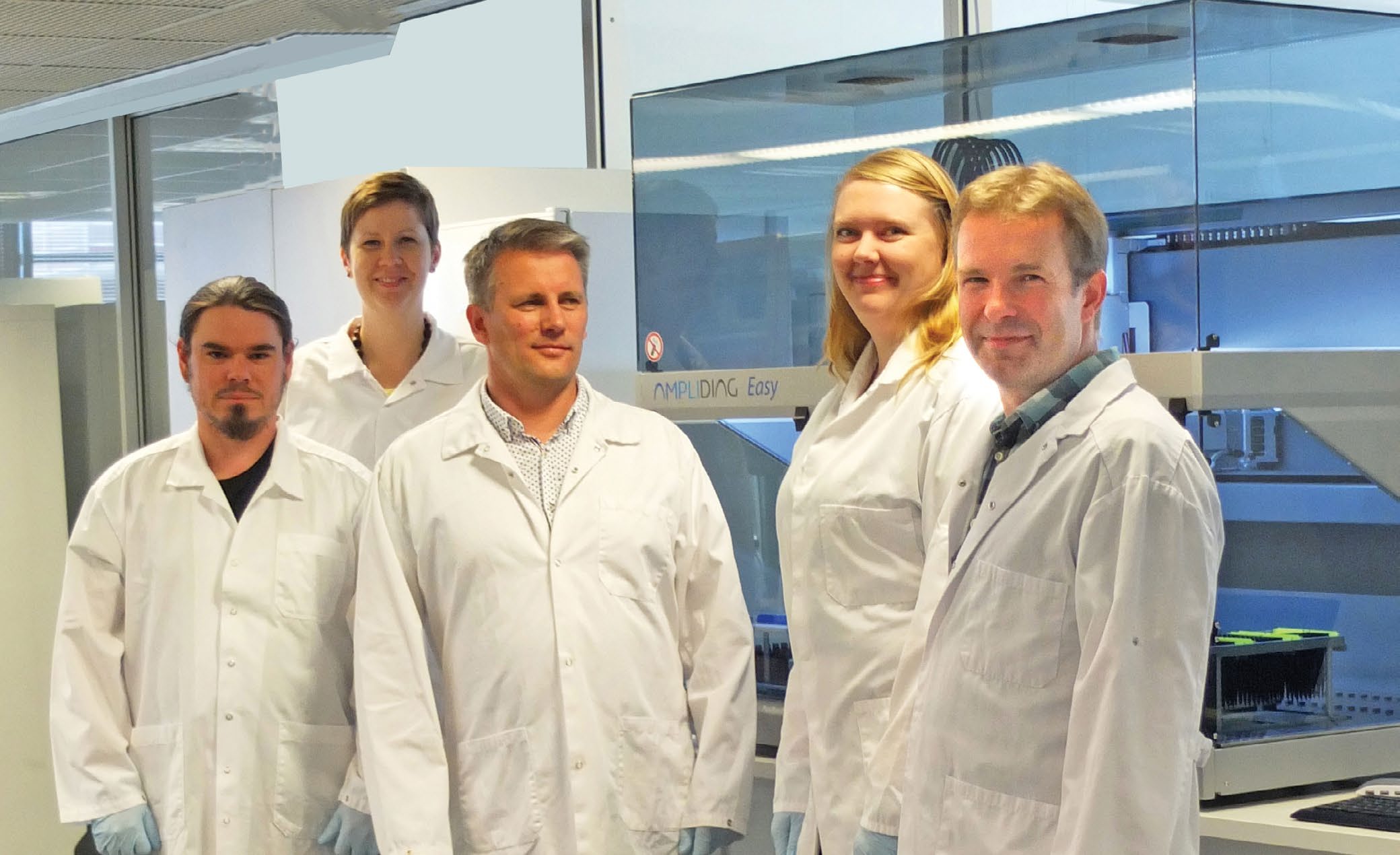Automation has an important role to play in molecular diagnostic workflows, minimizing manual interventions to help enhance throughput. Mobidiag has developed a CE-marked, automated platform for nucleic acid extraction and PCR plate set-up, enabling high volume screening and antibiotic resistance testing for gastrointestinal pathogens.

Molecular diagnostics is becoming increasingly common in laboratories worldwide, and this has driven a demand to move from tedious, time-consuming and labor-intensive manual processes to automated workflows. A further consideration for clinical laboratories is the potential hazards associated with handling dangerous pathogens, where user safety is a priority.
Mobidiag is a Finnish biotech enterprise specializing in developing and marketing novel, innovative solutions for molecular diagnostics of infectious diseases. The Espoo-based company was originally founded in 2000, merging with Amplidiag – a stool-based clinical assay development company focused on gastrointestinal diseases – and microfluidics and optics expert Genewave in 2013 to form the present day organization. Juha Kirveskari, R&D Director at Mobidiag, explained: “Clinical laboratories performing stool diagnostics can be working with dangerous pathogens. User safety is paramount, and molecular diagnostics can minimize the risk associated with these analyses. However, when performed manually, the process is laborious and time consuming. We already had a semi-automated platform, and wanted to streamline the process further, fully automating our suite of real-time PCR-based assays for gastrointestinal diseases to eliminate the numerous manual procedures required before and after extraction.”
"The automated system enables us to perform the extraction in two hours, from start to finish, producing two ready-to-run qPCR plates."
Mobidiag worked with Tecan to develop the Amplidiag® Easy system for automation of nucleic acid extraction and PCR plate set-up for the Amplidiag multiplex stool diagnostic tests for gastrointestinal infections. “I knew from clinical experience that the existing technologies had limitations, and were not ideal for our purposes. I’d used a Tecan platform in an open confi guration in a clinical laboratory in the past, so I knew the technology and the software, and that the hardware was reliable and could withstand routine daily operation without technical issues. I also knew that the local service personnel are highly professional.”
Juha continued: “We discussed our ideas with Tecan, and the company suggested some very helpful features. The result is Amplidiag Easy, a versatile, fully integrated platform operated through a simple TouchTools™-based graphical user interface (GUI). It includes a Te-MagS™ module for our magnetic bead-based assay technology, a heat block, and a PosID™ barcode reader, which saves a lot of user time by automatically scanning all the sample tubes. The system can also accommodate all the consumables needed for our assays; reagent tubes, extraction beads and PCR plates.”
“In a clinical laboratory, it is vital to avoid cross-contamination, and so we extract 48 samples at a time, physically separating them in a 96-well plate. The automated system enables us to perform the extraction in two hours, from start to fi nish, producing two ready-to-run qPCR plates. It is just not practical to do this manually, as it is quite a complex assay set-up. In theory, it would take a full day to perform, but it would be almost impossible to maintain the high level of concentration required to handle large numbers of samples without making a mistake.”
“The first stage of the workflow is transfer of the homogenized sample to the laboratory in an automation-friendly tube containing liquid medium. On arrival, it is barcoded and the cap is removed, then the entire extraction process is performed on the automated platform. The run is started via the GUI, which prompts the user to check that the set-up is correct, then the DNA extraction and qPCR plate set-up are performed without the need for user intervention. After manual heat sealing, the plate is moved to the CFX qPCR instrument (Bio-Rad) for processing, while the sample data is transferred via either a USB stick or a LIMS. The CFX system reads the plate barcode and imports all the sample data and protocols from the LIMS, starting the run automatically once the plate is in place. On completion of the run, automated data analysis is performed, and the results exported to LIMS. Manual interventions are virtually eliminated.”
“As a CE-marked instrument, the configuration and coding of the system are locked, but there’s still quite a lot of flexibility for customization, such as tailored protocols for extraction or PCR set-up only. This offers additional possibilities, for example, the implementation of in-house assay procedures. The system is now being distributed across Europe and other countries where CE marking is valid, and we are expanding and developing our service organization to ensure that laboratories have access to the technical advice and support they need. It has been a very successful project,” Juha concluded.
All Tecan products mentioned are for research use only. Not for use in clinical diagnostics.
To find out more about Tecan Partnering, visit www.tecan.com/partnering
To learn more about Mobidiag, go to www.mobidiag.com









